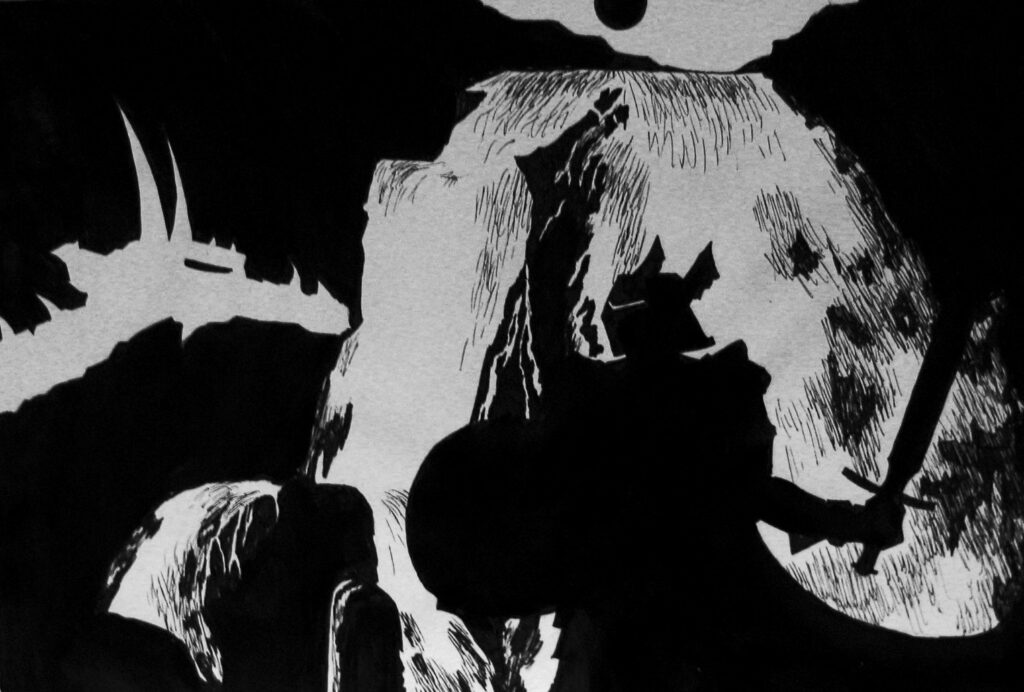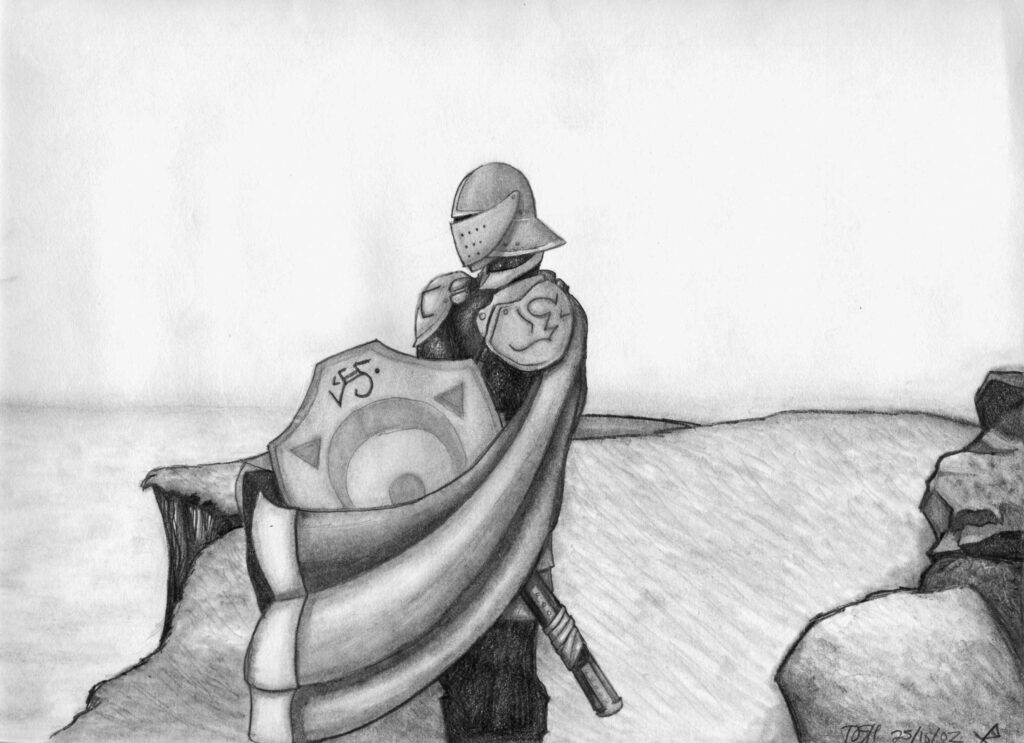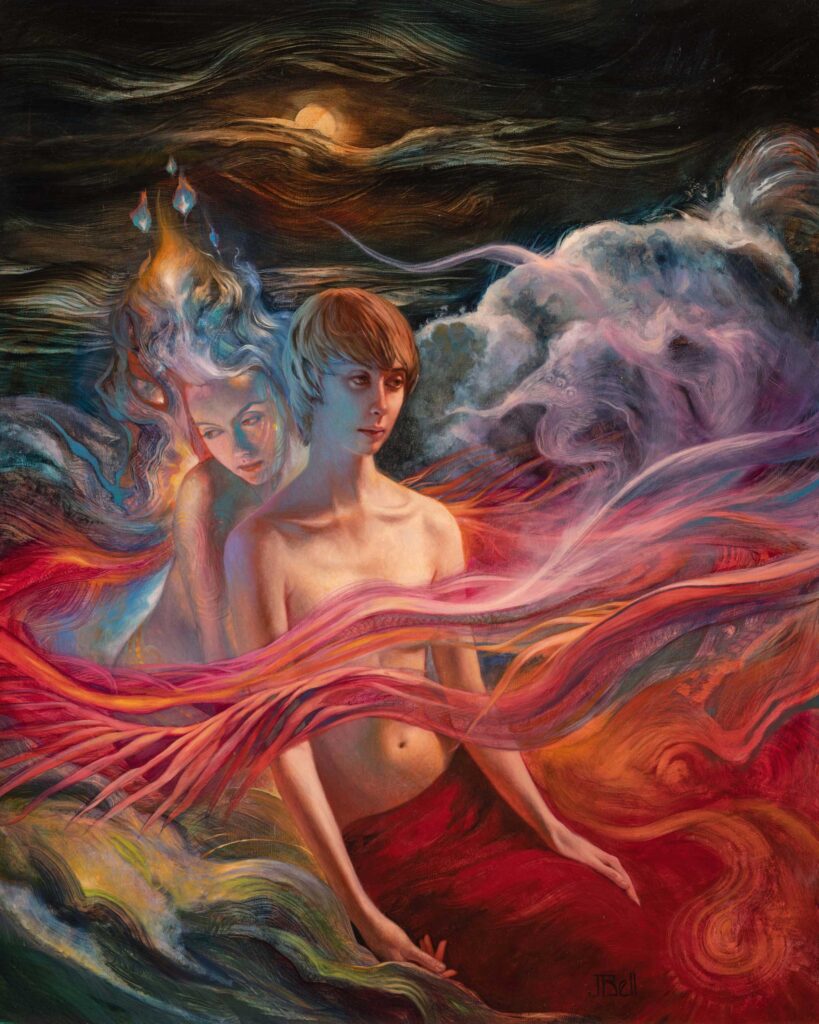
The following is in support of, or as a supplement to, the broader subject of “Why We Need Fiction” and also connects to the three-part “Analysis of There was Music“.
Assessing Genre
There was Music is Fantasy because it is set in an imagined world characterized by original races and domains of reality, both natural and supernatural. It also includes themes concerning power—“What is it, who holds it, who should hold it, and with what results?”— which Craword Killian writes is essential to Fantasy.[1] Overall, I enjoy creating a “Secondary World” because it offers what J.R.R. Tolkien describes as “freedom from the domination of observed ‘fact.’”[2] That is not to suggest that “real” fact and history do not influence the setting or ideas. Narratives in Fantasy “deal largely, or (the better ones) mainly, with simple or fundamental things, untouched by Fantasy.”[3] The appeal of Fantasy to me is the freedom to imagine topography framed by but not constrained to real world facets. Most Fantasy readers assume, unless otherwise informed by the author, that the setting’s features are similar to Earth in terms of physics, biology, ecology, etc. It is the occasional departure from such boundaries that make Fantasy interesting; for example, when an author directs his or her narrative into something more timeless, whether mythical, supernatural, and/or magical. This is most evident at the conclusion of Rhoda’s journey with Bard. These elements are not generally understood by Fantasy readers to be metaphor or surrealism, but literal; though metaphor can be considered in narrative interpretation.

Since mid-adolescence, my reading has mostly diverted from Fantasy. While my narrative is set in the imagined world of Illirium, the tone and central conflict fit more within the sphere of Literary Fiction, in which “style and technique are often as important as subject matter”, as well as Psychological Fiction, which emphasizes “the mental and emotional aspects of its characters, focusing on motivations and mental activities [more than] on exterior events.”[4]
Also influential is poetry, “in which the expression of feelings and ideas is given intensity by the use of distinctive style and rhythm.”[5] Though There was Music is not a collection of poems, nor includes poetry in the traditional sense, it echoes such intensification through its structuring. For example, one of the three points of view is shown as a “Dream Bridge” with poetic tones. I resonate with Gaston Bachelard when he writes that “dream values communicate poetically from soul to soul.”[6] I appreciate how poetry revels in abstract ideas and imagination sparked through a poetics of place or dreamlike transcendence, such as how Robert Frost’s “Acquainted with the Night” and Sylvia Plath’s “Lady Lazarus” explore death. With such rhythmic, abstracting quality, poetry serves as a link between prose and music, sight and sound, intellect and emotion. Fantasy also “personalises abstractions” as it directs the reader to explore “the human mind under imagined conditions that reveal something new—or something old, familiar and ingrained that we have taken for granted until [the author] make[s] us look at it again.”[7]
There are Fantasy subgenres in the publishing market that reconcile my influences of Fantasy, literary fiction, and poetry. I thus identify There was Music as “Literary Fantasy,” a subgenre defined as holding “strong stylistic elements (in format or language) and more meaning behind the story than is first apparent. . . . Characters are complex, and this allows the plot to develop in a more complex, yet intuitive way.”[8] This is the heart of Rhoda’s journey, often shown through “interior monologue” or an exploration of inner topography, comparable to the focalization on the protagonist’s musings in Fyodor Dostoevsky’s Crime & Punishment or Margaret Atwood’s Alias Grace. This is also characteristic of what some call “Low Fantasy”, in which “traditional elements are not present (or emphasized). The fantasy world might not have magic (or if magic exists, it’s not important in the context of the story) and the focus tends to be on the characters and/or plot rather than the fantastical elements.”[9] Ursula Le Guin summarizes how the genre “properly conceived” is about “trying to describe what is in fact going on, what people actually do and feel, how people relate to everything else in this vast sack, this belly of the universe, this womb of things to be and tomb of things that were, this unending story.”[10] This is my goal.
Footnotes
[1] 2014, p. 136.
[2] 2006, pp. 143, 139, emphasis added.
[3] Ibid. p. 147.
[4] Writer’s Digest University.
[5] Oxford English Dictionary. Available at https://en.oxforddictionaries.com/definition/poetry (Accessed 30 August, 2018).
[6] 1994, p.17; see also Delany, 2006, p.77.
[7] Killian, 2014, p. 134.
[8] BestFantasyBooks.com.
[9] Ibid.
[10] 1997, p. 154.
